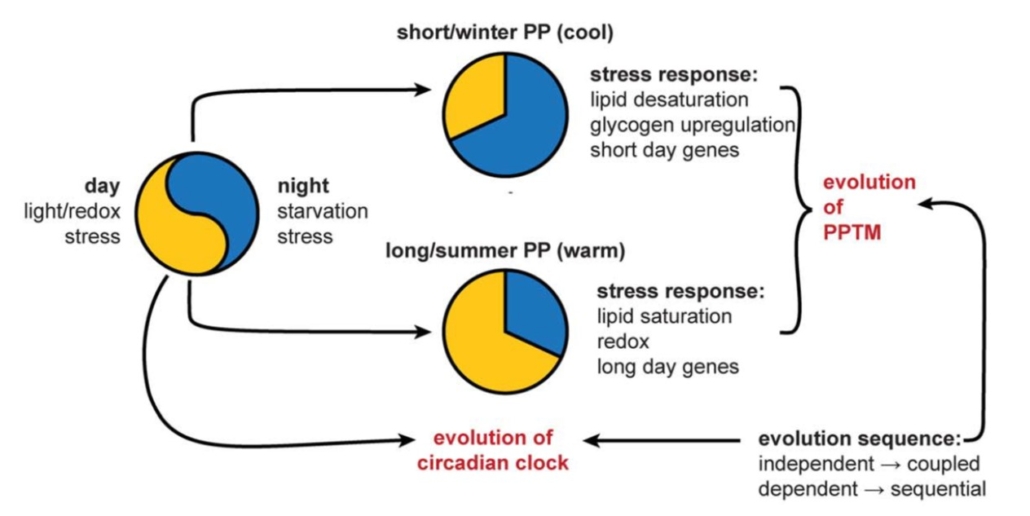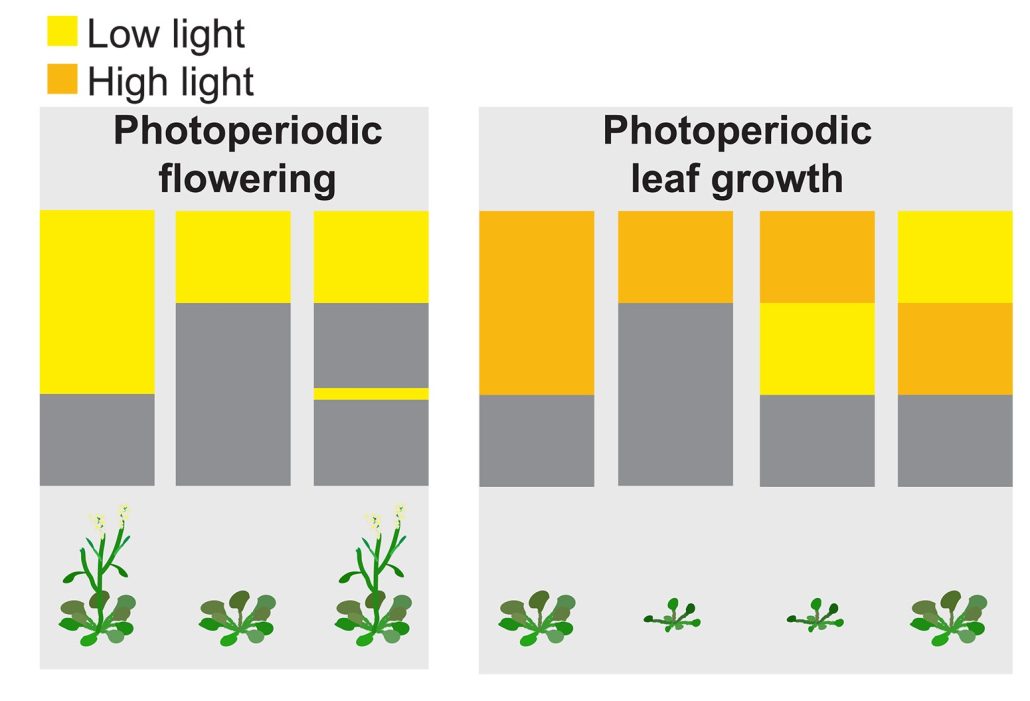
Timekeeping mechanism in prokaryotes: Cyanobacteria can anticipate the seasons
Plant Science Research WeeklyCyanobacteria, although short-lived, are sensitive to photoperiodic time measurement just as in eukaryotes. Jabbur et al. discuss the discovery of photoperiodism in prokaryotic cyanobacteria, Synechococcus elongatus and their ability to anticipate seasonal changes through light and dark cycles similar…

Seasonal flowering and seasonal growth measure light duration differently
Plant Science Research WeeklyOne of the first lessons a plant biologist learns is that many plants coordinate their seasonal flowering through measuring daylength, and that this process involves both photoreceptors and the biological clock that functions inside of cells. Of course, daylength also affects plant metabolism, in part…

